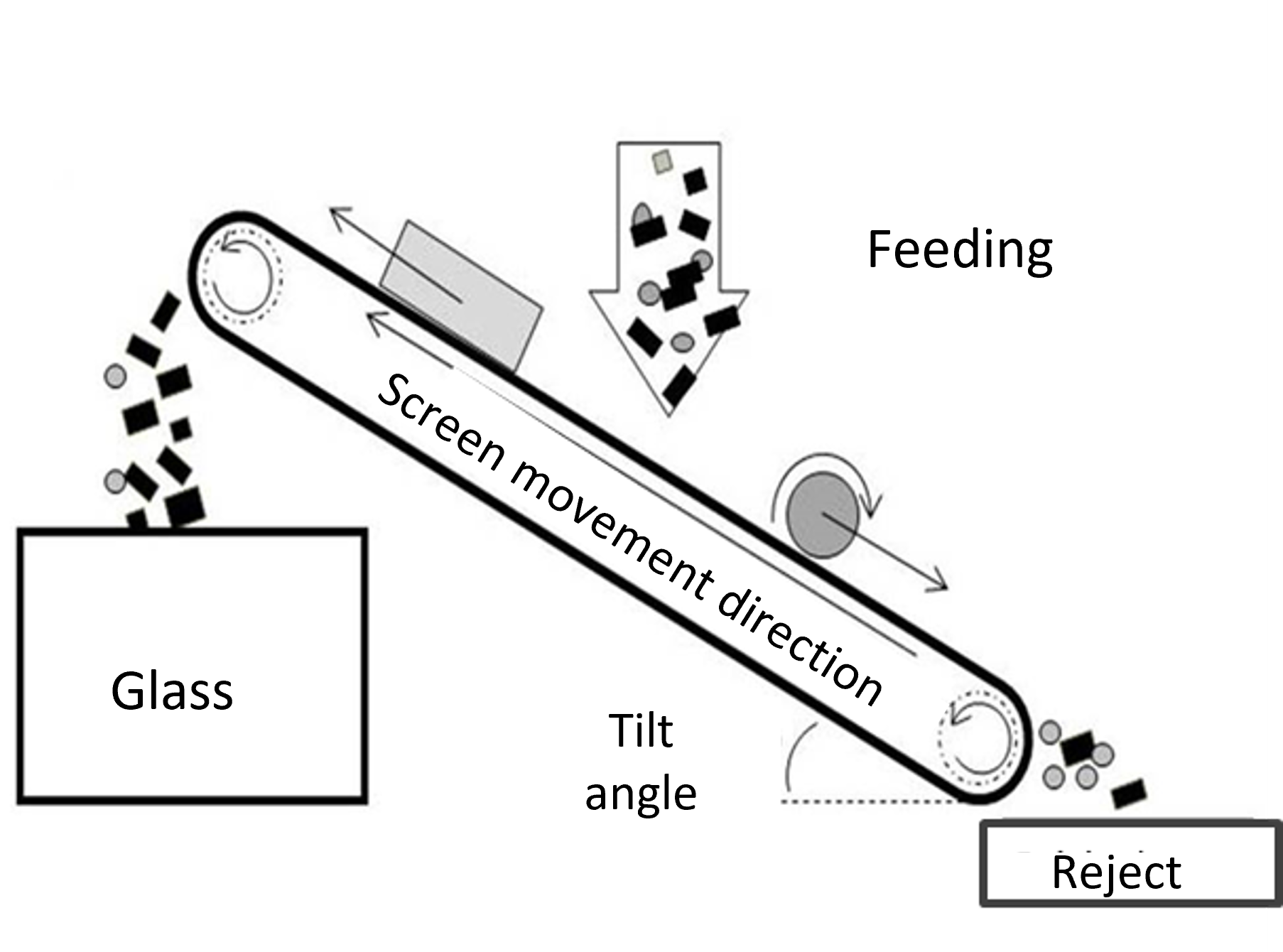
CIRCULAR ECONOMY- RECOVERING PACKAGING GLASS CONTAINED IN THE INERT FRACTION FROM MBT PLANTS
The aim of this work was the valorisation of the heavy residual fraction of Mechanical Biological Treatment (MBT) plants fed with unsorted Municipal Solid Waste. This product contains a significant amount of glass. It was found that the glass content in this product varies from plant to plant. Minimum and maximum values of 33 and 67% were determined.
Why this glass has beign landfilled? Because the contamination with other materials, onther inerts (as stones and concret blocks plus organic matter (as seeds)) is so high which reduces the possobility to process it by optical sorting, which is the end-of-line technology used in glass recycling.
In the project, funded by SPV, as mentioned in the section about glass in the unsorted waste, where I was the main researcher and supervised by my supervisor (prof. Teresa Carvalho, from IST), an equipment with a simple and cheap process, RecGlass, which exploits the differences in the shape of glass particles and stones was developed. Through this equipment we could remove 50 - 90% in weight of the stones (main contaminant), and the concentrated product reached 63 - 97% in glass content, whuch is pretty good to be recycled.
This work was published in scientific paper in journals:
- Dias, N., Belo, N., Máximo, A., Carvalho, M.T.,2014. Recovery of Glass Contained In The Heavy Residual Fraction Of Portuguese Mechanical Biological Treatment Plants. Journal of Cleaner Production. Volume 79. P271-275. https://doi.org/10.1016/j.jclepro.2014.05.028
- Carvalho,M.T.; Dias, N.; Brogueira, P.,2015. Separation by particle shape – the RecGlass device. International Journal of Mineral Processing. Volume 140, Pages 1-7. https://doi.org/10.1016/j.minpro.2015.04.016
- Dias, N; Garrinhas, I., Máximo, A., Belo, N., Carvalho, M.T., Roque, P., 2015. Recovery of glass from the inert fraction refused by MBT plants in a pilot plant. Waste Management. Volume 46, Pages 201-211. https://doi.org/10.1016/j.wasman.2015.07.052
Proceedings:
- Jardim, H., Dias, N., Carvalho, M.T., 2016. The sanitary landfill of the xxi century in Portugal. The streams produced by municipal incineration and mechanical and biological treatment. Third International Symposium on Enhanced Landfill Mining (ELFM III). Portugal
- Dias, N., Garrinhas, I. Carvalho, M.T., 2015. Optimization of optical sorting to recover glass from the heavy residual fraction refused by MBT plants fed with mixed waste'. ISWA. Poster. Antwerp, Belgium
- Dias, N. & Carvalho, M.T.,2015 Recovery of packaging Glass refused by Mechanical Biological Treatment Plants – Case Study. São Paulo, Brasil. Pages:164-174. III Progress of Recycling in the built environment. e-ISBN: 978-2-35158- 158-2
- Martins, M.M, Dias, N., Carvalho, M.T. Application of the shaking table to separates stones from glass cullet in the fine heavy reject of the Mechanical and Biological Treatment of MSW. XXVII International Mineral Processing Congress, Santiago, Chile. October, 2014.
- S. Landim, F. Durão, A. Máximo, N. Dias, C. Ulsen, M.T. Carvalho.,2014 Recovery of glass from MBT heavy rejects - optimization of the gravity concentration flowsheet. Symposium on Urban Mining. SUM 2014. Bergamo Italy.
- Dias,N., Carvalho, M.T., Limons, R., 2013. Challenges in the deactivation of more than 2000 open dumping sites in Brazil.14 th International waste management and landfill symposium. Sardinia.
